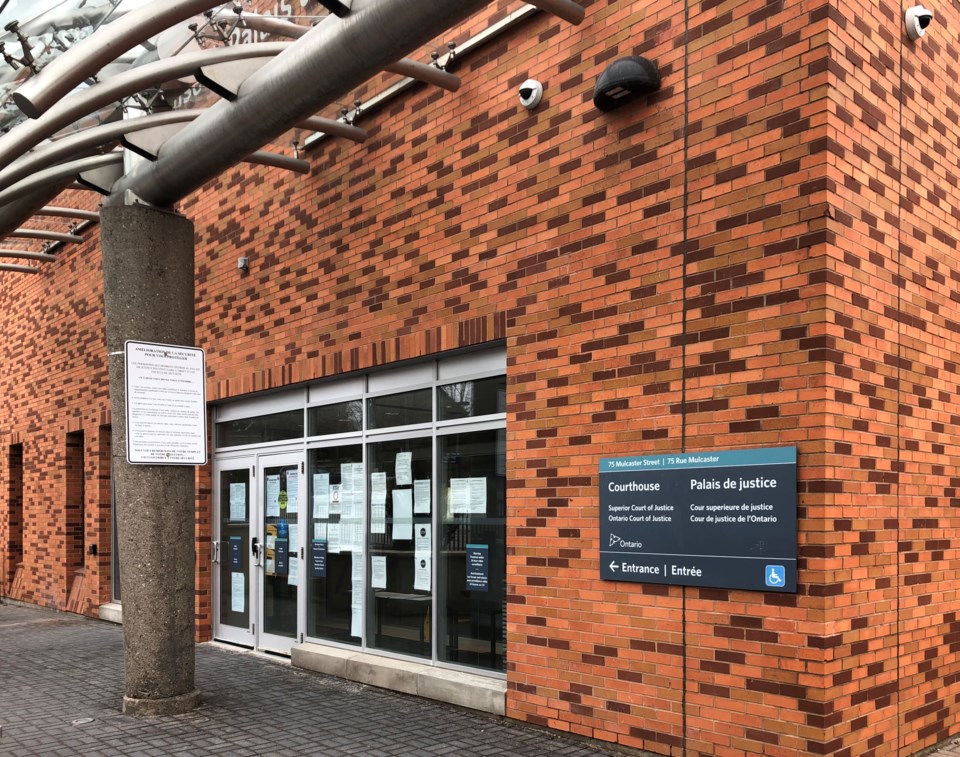The doors to the halls of justice are slowly creeping open.
With access to an additional court last week, Barrie criminal lawyer Gary Pickard was able to bring forward his first case in two months of someone accused of a criminal charge who isn’t in jail waiting for his day in court.
As the courts moved from normal daily operations in March to a skeletal version operating largely virtually, the criminal courts had been dealing primarily with people in custody through video and phone conferencing.
There have been bail hearings and bail reviews with lawyers pitching to have accused released from jail to wait for their day in court at home instead of in a provincial institution where they argued the risk of exposure to COVID-19 would be increased.
Although no trials have gone ahead, Barrie judges have heard guilty pleas and held sentence hearings for those in custody.
“Now they’re doing them for people out of custody as well,” said Pickard, whose client wanted to plead guilty to impaired driving on Thursday. “I think mine was one of the first ones they’d done.”
It wasn’t a smooth start, Pickard discovered he had called into the wrong courtroom. It was complicated by the fact that his client’s name didn’t appear on that day’s court docket.
But eventually Pickard and his client as well as his mom all managed to dial into the right court and have the charge addressed.
Slightly expanded operations also allowed Pickard to do some pre-trials over the phone as well, likely meaning the resolution of more cases this week.
“They’re doing what they can to move things around in the shut down,” he said.
It’s at least something to relieve the growing burden that awaits the courts when they finally resume operations, no sooner than July.
Tuesday will bring more slightly expanded services, although exactly how they roll out differs from region to region, Ontario’s Superior Court Chief Justice, Geoffrey Morawetz announced in an updated notice to the profession this week.
He also pointed out that lawyers are expected to use “every effort to resolve matters” including mediation and use of the virtual courts.
Amanda Chapman is happy that courts in the Central East region, which includes Orillia, will now accept short civil motions in writing. That, she says, at least allows lawyers to file notice of motion, affidavits and factum all by email, including hyperlinks to case references.
That’s a big leap for a system that was heavily reliant upon physical papers before the health crisis brought an end to physical interaction between people.
The downside, says Chapman, is that when the system returns to something more closely resembling normal operations, that paperwork will still have to be filed and the fees paid, an administrative-heavy process.
Prior to the pandemic, there were limited opportunities for electronic filing and exchange of information via email. Now, she’s expecting the system will have to more permanently adopt at least some of the electronic methods currently being used.
“Before COVID we could not serve anything electronically without the consent of the other side,” said Chapman. “Now we’ve kind of accepted that everyone’s using email, everyone’s using electronic documentation. Now that’s going to be an accepted form of service.”
